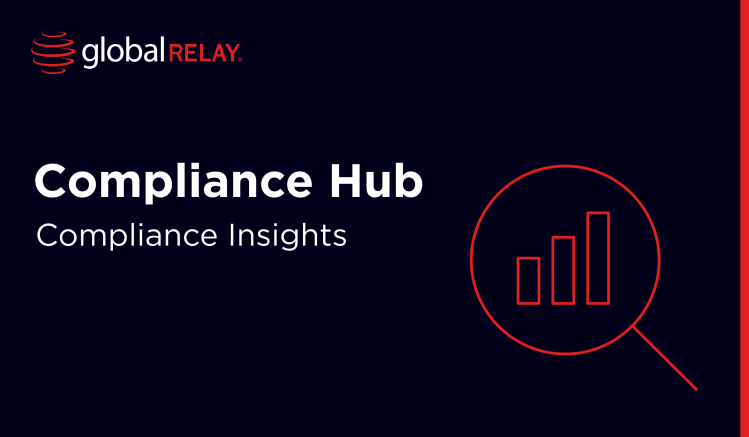Written by a human
It’s almost impossible to talk about data archiving without mentioning GDPR; the most transformative online data rules in decades. In 2023, Meta was fined $1.2 billion after breaking GDPR’s international data transfer rules between Europe and the US, forgoing the standard to instead opt for a new way without adequate level of data protection.
To avoid similar penalties, data and compliance leaders need to consider the reasons why their team needs data archiving, and choose the right data archiving solution for them.
What is Data Archiving?
Data archiving is the storage of digital information that is now inactive, in that it will rarely need to be accessed or modified. Data archives are therefore sometimes known as ‘cold storage’, because they can run on lower energy consumption when compared with digital archive methods that require constant access.
Most organizations that perform data archiving do so for compliance purposes, and may have to archive websites, social media communications, emails, texts and even emojis.
Data archiving is a different practice to data backups, which many organizations are also required to perform on an ongoing basis. The purpose of backups is to provide a copy of your organization’s data in case of loss or damage, in order to recover the information quickly and minimize impact on operations. This would be important in the case of cyberattacks and ransomware threats, for example. At large enterprises, data backups might occur once per day or even more frequently.
Instead, data archiving is focused on retaining data for the purpose of providing evidence in legal and regulatory matters. There is therefore no set schedule for data archiving and companies should simply archive data once it’s no longer ‘active’ or required for access.
Importance of Data Archiving
Data archiving is incredibly important, not just for covering your back in legal cases or against the regulators.
Cost
Choosing to archive, rather than retaining the data in live or backup forms is an incredibly cost-effective way to operate. In fact, across seven years of data archiving, hardware storage methods for 200TB of data can cost between one-third and one-fifth of cloud storage costs.
This gap only compounds as the data volume increases, especially because cold data archiving is typically paid-for upfront, whereas cloud storage is priced per terabyte.
Performance
Performance
By archiving dormant data, organizations can free up their systems to operate more quickly, improving efficiency.
Most of us know the feeling of our cell phones slowing down after we’ve taken thousands of pictures and downloaded too many apps – in order for the phones to operate fully, such as loading up photos for instant access, the user interface gets much slower. Suddenly, once a thousand vacation photos from 2012 are deleted, everything returns to normal.
The same concept applies to business devices and their organizational data. By freeing up space on everyday devices, company systems are not drowning in defunct data and can operate with enough space for maximum performance.
Compliance
In 2021, Hines Securities strengthened their investment business with the launch of their own RIA firm. With the need to capture and retain more employee data for regulatory compliance, the Hines team needed to meet two different standards for data retention; three years for the broker-dealer arm, and seven years for the RIA.
Since migrating to Global Relay Archive, Hines processes for electronic records retention and compliance supervision have been significantly optimized. With improved searchability and reduction in false positives, Hines has experienced better accuracy to flag potential regulatory infractions.
As a FINRA-regulated firm, Hines Securities also opted to switch to Global Relay’s fully integrated and compliant text messaging solution that allows their community of advisers to send and receive business-related texts from their personal devices without risking a compliance violation.
Types of Data Archiving Solutions
There are two key types of archiving data solutions for businesses:
- Database archiving (offsite)
- Cloud archiving
Database Archiving for Communications
Database archiving refers to an enterprise storage solution typically used for eDiscovery. Built specifically for communications archiving, these platforms tend to automate the compliance process and meet the needs of specific regulatory requirements.
They’re usually formed from hardware like hard disk drives and purpose-built servers, which makes them very secure, compared to cloud-based solutions.
For example, Global Relay’s database archiving system enables the easy identification, search and categorization of data, which is especially useful for audits and investigations.
By integrating with a surveillance platform – which initially captures and monitors the communications – you can enforce legal holds and prevent deletion or destruction. From a compliance perspective, this is advantageous in avoiding sanction and fines, strengthening your defence program.
Cloud Archiving
Alternatively, cloud archives are known as ‘hot data’ storage centers – they are perfect for organizations that need to access or amend their information more frequently.
Instead of offsite data farms with hardware, the infrastructure is cloud-based software which makes it very convenient. It also means that the data is restorable and reloadable without much effort, which can be more costly.
Choosing the right archiving solution
When weighing up the data archival options, it’s important to consider what matters most to your organization:
- Regulatory compliance constraints: what are your compliance priorities, and how highly does the solution also prioritize them?
- Accessibility needs: for example, in respect of GDPR, do you need to be able to access, edit and delete personal data regularly? How quickly does each provider fulfill access requests?
- Data security demands: do you require military-grade encryption to protect your sensitive information? How many past breaches has each provider encountered?
- Cost: does your budget match the platform’s pricing?
If you’re searching for communications and database archiving solutions that intelligently unearth the most relevant conversations, enabling control from capture to final disposition, choose Global Relay. With military grade dual encryption and ongoing integrity checks, no one takes the security of your data more seriously.

